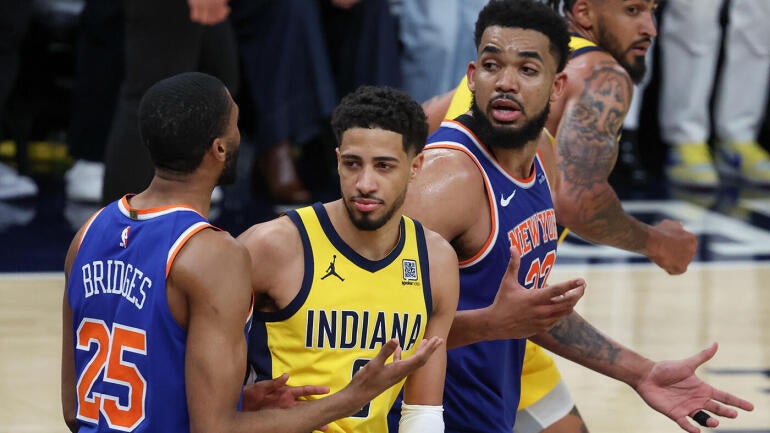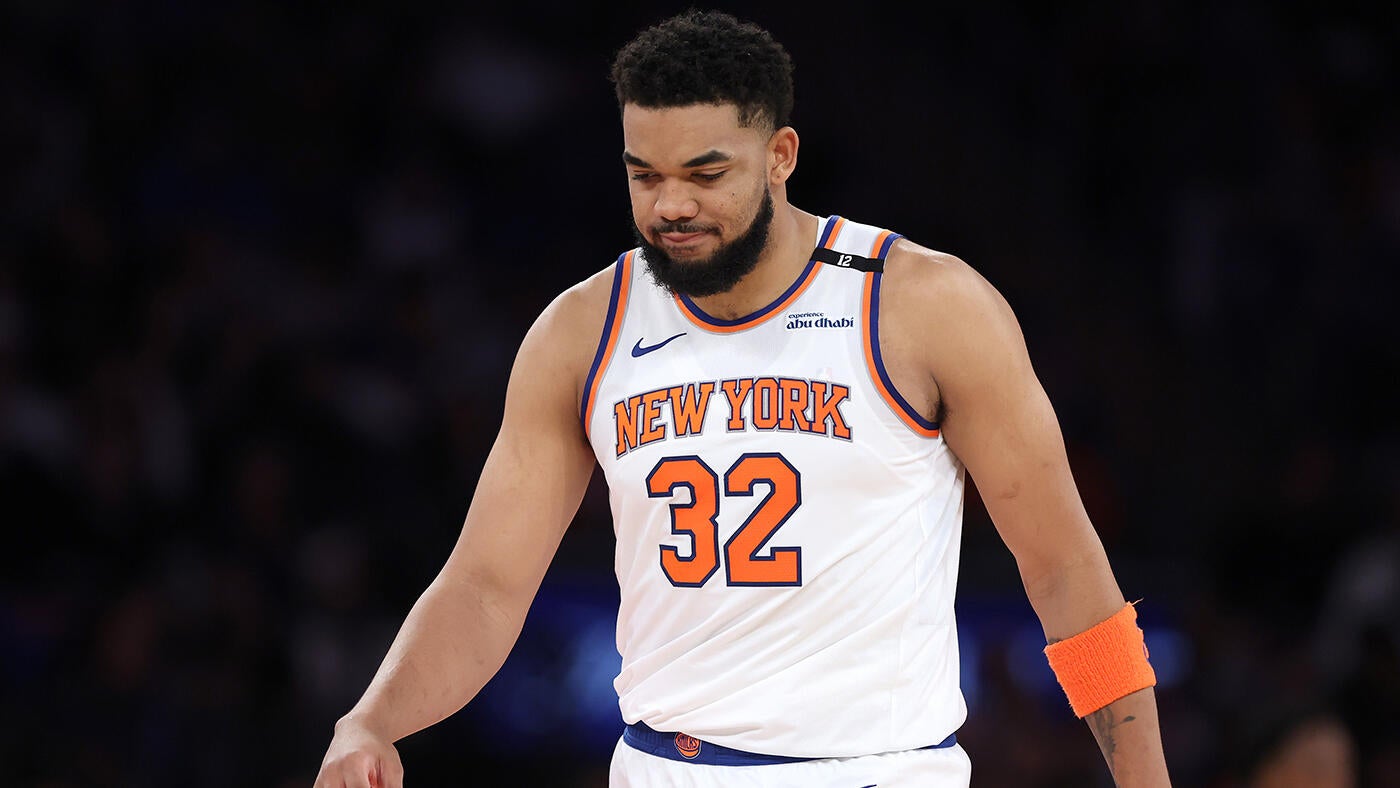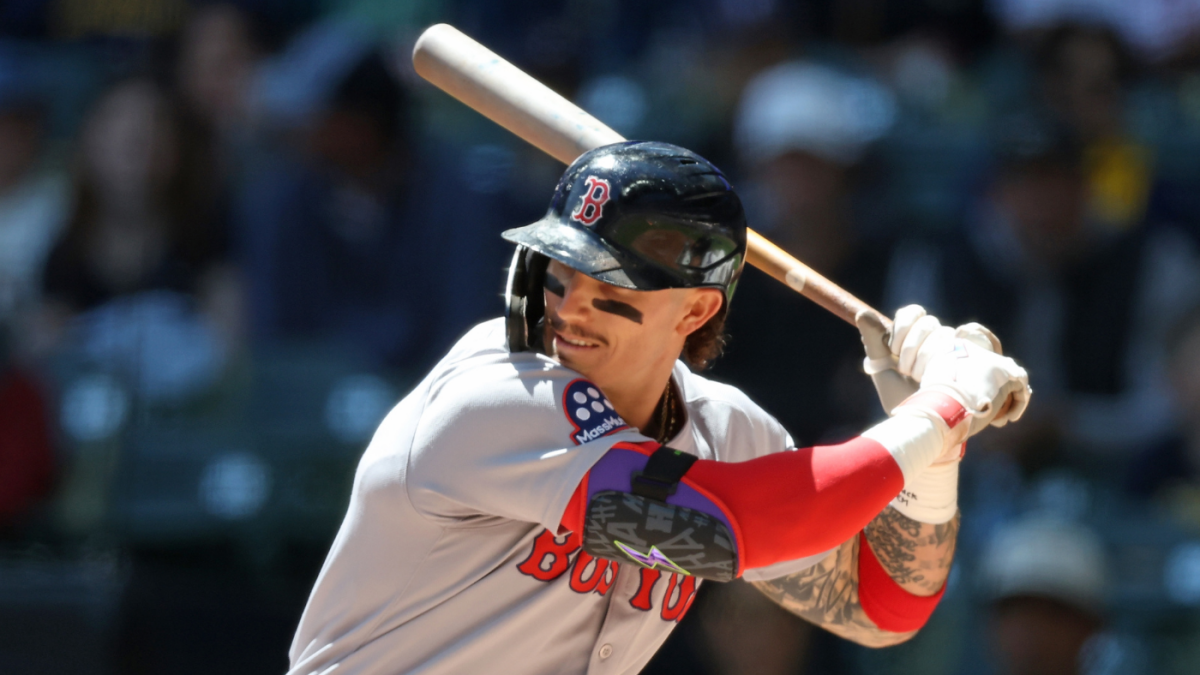
When the New York Knicks acquired Karl-Anthony Towns, the idea was to supercharge their offense in the absence of defensive stalwart Isaiah Hartenstein, who left to join the Oklahoma City Thunder. Their results on that end of the floor were mixed, but as the season progressed, the defensive downgrade from Hartenstein to Towns grew increasingly apparent. When the Knicks had both Towns and Jalen Brunson on the floor in the playoffs, they just couldn’t get stops.
Brunson, given his size, is almost automatically vulnerable on defense. Towns doesn’t have the same issue. He’s legitimately center-sized and a stellar athlete, but he’s never been a great defender. In a postmortem on New York’s season following its elimination at the hands of the Indiana Pacers on Saturday, The Athletic’s Fred Katz and James Edwards reported that over the course of the season, the Knicks grew increasingly frustrated with Towns’ defensive habits.
“Publicly, Knicks players made veiled comments all season about poor communication causing their inconsistencies,” Edwards and Katz wrote. “Behind the scenes, they and coaches expressed frustration with Towns’ defensive habits — less concerned with his talent level and more with his process on that end. Too often, Towns executed incorrect coverages without communicating why he did it. After it became a theme, players worried Towns didn’t grasp the importance of the matter.”
Longtime defensive ace PJ Tucker, signed late in the season as a veteran for New York’s locker room, summed up matters succinctly.
“They all talk to me,” Tucker said after Game 1 of New York’s second-round series against Boston. “But they didn’t talk to each other in real-time, in those situations.”
Communication has always been essential to successful NBA defense. That has never been truer than it is now. Modern offense has the spacing and creativity to stress defenses in ways that that simply weren’t possible even a decade ago, and defense has grown far more sophisticated as a result. Sticking to the scheme and communicating with teammates is paramount because an entire defensive structure can fall apart if one player is out of place. If teammates don’t trust Towns to be in the right position or do the right things, their own positions are compromised.
New York’s regular-season defense was 2.8 points per 100 possessions better when Towns was on the bench. In the playoffs, it was much closer to even, but the Towns-Brunson units got tortured. Towns was a big part of that. Whenever he played drop coverage, the Pacers killed him with the jumpers he allowed. When he switched, they beat him one-on-one.

Realistically, the Knicks are not moving Brunson. He is the franchise player. That means the onus is going to be on Towns to make this partnership work defensively. He has never been a strong rim-protector, but he has functioned within successful defenses in the past. He did so for the Minnesota Timberwolves a year ago as they ranked No. 1 in the NBA defense. That came as a power forward, and with Mitchell Robinson now healthy again, maybe the Knicks move him back to that position next season in the hopes that it bolsters their defense.
But given the frustration evident here, it wouldn’t be out of the realm of possibility for New York to consider another Towns trade. After all, Robinson is healthy again. They have a defensive-minded center they can build around, though he likely needs another starting-caliber big on his team to protect against injuries and overuse. If the Knicks don’t view these lapses as fixable, they will at least explore what’s out their for their All-NBA big man. After all, he’s been in the NBA for a decade now. If he hasn’t figured out his defensive issues in all of that time, the odds of him ever doing so certainly aren’t in his favor.


